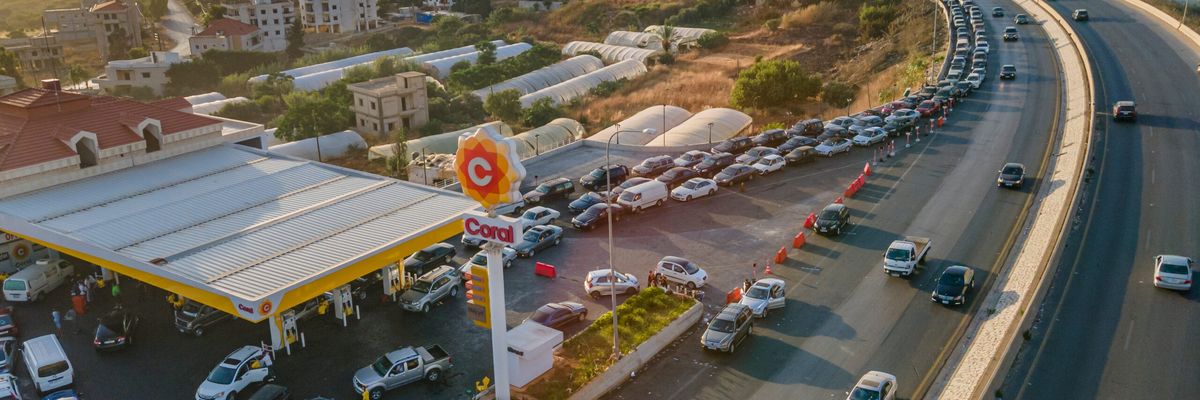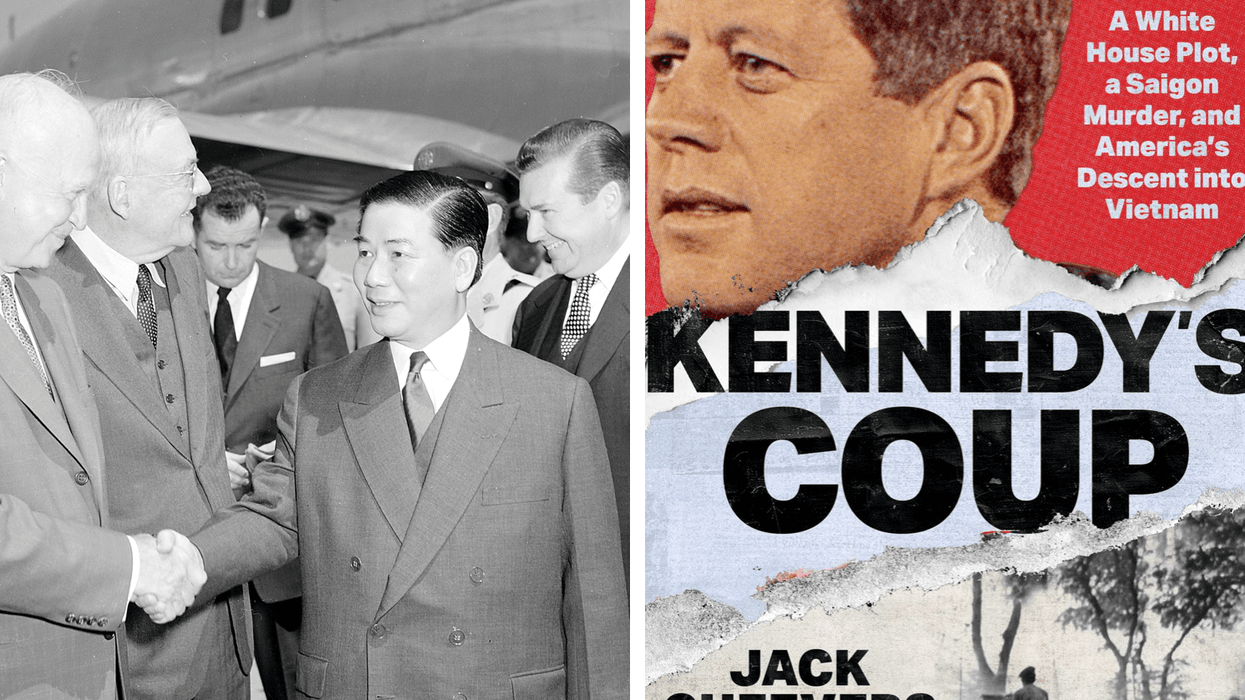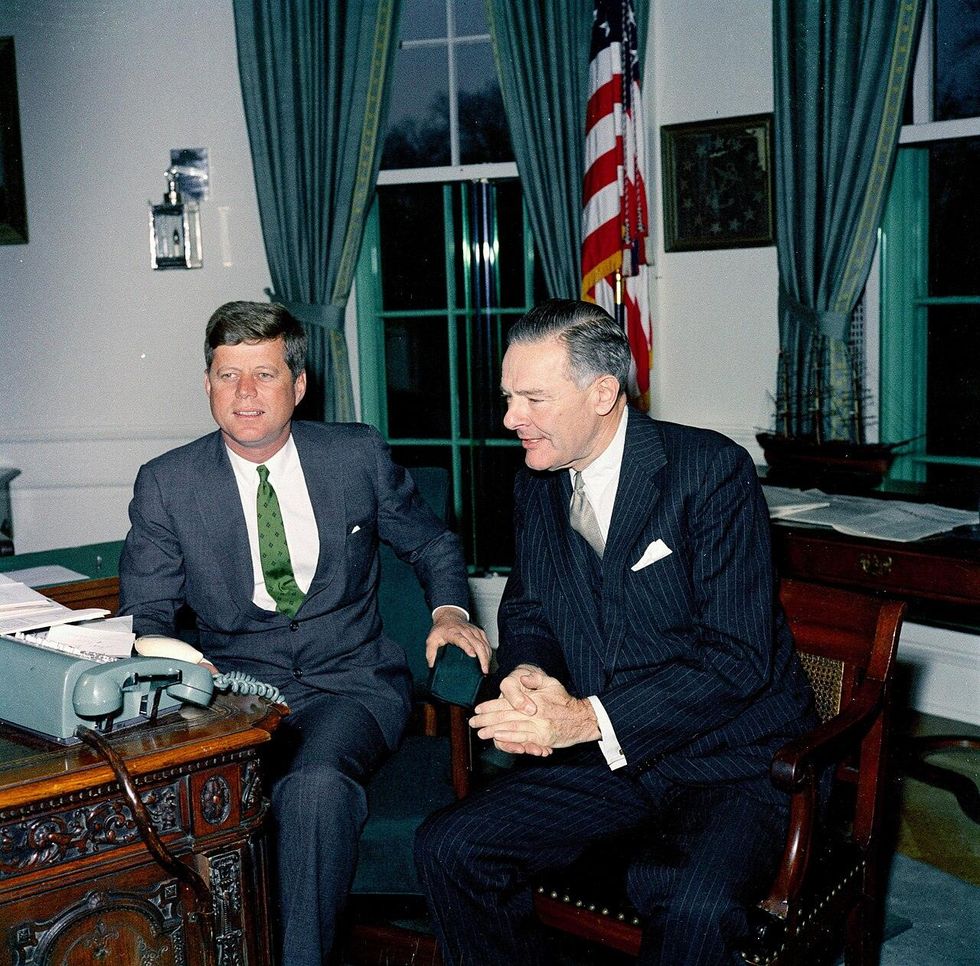In the midst of an economic collapse and an energy crisis, Lebanon has found itself in a tug of war between the United States and Iran. On August 19, Hezbollah Secretary General Hassan Nasrallah announced an arrangement for a diesel fuel shipment from Iran to Lebanon, which would be a violation of US sanctions against the Islamic Republic. A few hours later, the US ambassador in Beirut, Dorothy Shea, declared that Washington will help Lebanon implement a plan to transfer Egyptian gas to Lebanon for power generation. This set the stage for increased tensions that will likely have repercussions on how this and other issues in Lebanon develop moving forward.
Background on Lebanon’s energy crisis
The unraveling of the Lebanese state reached unprecedented stages in recent months. The caretaker government of Prime Minister Hassan Diab has practically suspended its primary responsibilities since its resignation in August 2020. A severe state power shortage has caused excessive consumption of diesel by private generators that provide alternative electricity in towns and cities across Lebanon, and this led to long lines at gas stations. Fuel and diesel that were subsidized by the government at the exchange rate before the liquidity crisis (at approximately 1,500 Lebanese pounds to the US dollar) were hoarded and hidden by cartels, monopolists, and traders with connections to the political class; they had hoped that the supplies would be sold at a higher profit margin, once the price was readjusted to market value. What made matters worse was that this subsidized fuel was being smuggled for a better price to areas in Syria under regime control, which was in violation of American sanctions under the Caesar Syria Civilian Protection Act that went into effect in June 2020.
On June 30, the Lebanese parliament approved a law that issues prepaid cash cards for poor families, in preparation for removing the subsidies on basic commodities. Then on July 24, Lebanese authorities signed a deal to import one million tons of Iraqi fuel for an estimated $300-400 million, in exchange for the provision of health services and agricultural consultations by Lebanon. The prepaid cash cards and the Iraqi shipment are not expected until September, but the pressure has been growing and there was need for immediate relief during the summer.
The significant shift was on August 11 when the US-backed Lebanese Central Bank governor, Riad Salameh, unilaterally ended the fuel subsidies, claiming that they were draining the currency reserves while not serving their purpose, and replaced them with credit lines for fuel imports. This led to a clash between the Central Bank, on the one hand, and the Lebanese presidency and the caretaker government, on the other—the latter preferred a gradual removal of subsidies until prepaid cash cards for the poor take effect, expectedly at the end of September. The Central Bank and the Lebanese government reached a compromise on August 21 that restores partial fuel subsidies until the end of September by setting the new prices at an exchange rate of 8,000 pounds to the dollar, which is lower than the black market, while the difference in cost would be paid by the Lebanese government.
Hezbollah takes the lead
Against this background, and to alleviate pressure on its supporters and the Lebanese system, Hezbollah decided to take matters into its own hands—although it had previously refrained from directly interfering in economic issues and maintained a hands-off approach. First, Hezbollah markedly increased political pressure to form a new Lebanese government led by Prime Minister-designate Najib Miqati. Second, on August 14 it gave the green light to the already overstretched and cash-strapped Lebanese military to begin confiscating the hidden fuel and diesel supplies and to distribute them free to the public, to provide short-term relief to the market.
Hezbollah decided to take matters into its own hands—although it had previously refrained from directly interfering in economic issues and maintained a hands-off approach.
Third, Nasrallah said in a speech1 on August 17 that Hezbollah had communicated with the Syrian regime, but the latter declined to provide diesel due to Syria’s own shortage problems. The secretary general noted that Hezbollah also raised with Damascus the issue of smuggling fuel and diesel from Lebanon to Syria but exonerated the Assad regime from these activities; this was the first time Hezbollah publicly recognized the problem of smuggling. While the Lebanese army’s raid on hidden fuel supplies might limit the cross-border activity, the irregular trade is not expected to halt in the foreseeable future given the vast uncontrollable border and the continuing demand in Syria.
Fourth, while the Assad regime declined to supply Lebanon with fuel diesel, Iran stepped in to help Hezbollah. Iranian media close to the Iranian regime reported2 that the shipment was bought by Lebanese Shia businessmen from private sources, which means that Hezbollah may have sought to avoid burdening Lebanese authorities with this decision. Nasrallah affirmed that from the moment the ship had sailed it was considered in “Lebanese territory,” warning the United States and Israel not to disrupt it. A few hours later, US Ambassador Shea announced in a phone call with President Michel Aoun that the United States will ask the World Bank to fund the project of transferring Egyptian gas to Lebanon via the Arab Gas Pipeline that passes through Jordan and Syria before reaching Beddawi in northern Lebanon, to ultimately feed power plants in the country. This plan is not new, but the Biden Administration has been reluctant to approve it given the legal implications of violating US sanctions on Syria.
The Nasrallah-Shea face-off and the Arab gas pipeline
The timing of the US announcement on transferring Egyptian gas to Lebanon could not have been made at a worse time; indeed, Washington fell into Hezbollah’s trap. The quick US reaction was meant to overshadow and upstage the Iranian shipment, but it ultimately drew a link between requesting the Iranian ship and facilitating the World Bank funding, which feeds Hezbollah’s narrative that the United States is deliberately isolating Lebanon economically to undermine the party. This had a political impact that played into Hezbollah’s interests: the Lebanese Forces, an anti-Hezbollah Christian political party that is close to the United States, has now potentially lost a parliamentarian ally in the Bekaa Valley after deputy Cesar Maalouf criticized3 the US reaction and welcomed any outside help from Iran and others.
The timing of the US announcement on transferring Egyptian gas to Lebanon could not have been made at a worse time; indeed, Washington fell into Hezbollah’s trap.
The US embassy should have let the concerned countries take the lead on this announcement instead of giving the impression that it was merely US driven. Jordan’s King Abdullah II raised the issue of Lebanon during his meeting with President Joe Biden on July 19 and Amman rushed to endorse this plan as it seeks to play a key transit role in Eastern Mediterranean gas, as part of its regional plan to improve its economy, which includes normalizing relations with the Assad regime. The Syrian oil and electricity ministers, Bassam Tomeh and Ghassan al-Zamel, visited4 Amman on June 23 and met their Jordanian counterparts to discuss the Arab Gas Pipeline. Parts of this pipeline, which originates in the Sinai Peninsula, go through Syrian regime-held territories; however, they were damaged during the war and need repair before this plan is executed. Most importantly, the scheme requires both Lebanese authorities and the World Bank to talk with the Assad regime, which is expected to request a portion of the gas that passes through its territories as well as a transit fee. The question is whether the Syrian regime will accept facilitating the transit of Egyptian gas without meeting its recurring preconditions of direct high-level talks between Lebanese and Syrian officials.
Like the Trump Administration’s policy toward Iraq regarding Iranian fuel, the Biden Administration is granting Lebanon an exception from the Caesar Act to ultimately conduct this business transaction with the Assad regime. However, the timeline is not yet clear, it is not known if the funding will be a donation or a loan, and there are questions as to what this would mean for Lebanon’s relations with the Assad regime.
The next important challenge for the US-sponsored plan is that the Lebanese electricity infrastructure is not adequately equipped with power transmission lines to function on natural gas. This is one of the many failures of Lebanese authorities in approaching the gas exploration process since 2009.
Potential scenarios and contingencies moving forward
There are several calculations and motivations in the Nasrallah-Shea face-off as, so far, both sides have contained their reactions and shown no intention to escalate further. By importing energy resources from Iran, Hezbollah sent a message that it would not stand by if the United States continued linking foreign aid to forming a Lebanese government of technocrats. In return, the United States has maintained that it would not remain idle if Lebanon switched its economy to rely on Iran to provide one of its most basic commodities. Lebanese authorities also have long resisted US pressure to compromise with Israel on delimiting their maritime border that allows both governments to begin unrestricted gas exploration off the Mediterranean coast, and Washington is reminding Beirut in this face-off that it prefers that Lebanon be linked to the Arab Gas Pipeline rather than to Iran.
Moreover, if the Iranian shipment passes through the Suez Canal, as expected, it should reach its destination around the end of August. As of now, Lebanon has not given authorization for this ship to enter Lebanese waters and the expectation is it might reach Tartous in northwest Syria before it is transported by land to Lebanon—which is itself a logistical challenge that would add to the monetary cost.
Neither Lebanese authorities nor Hezbollah are challenging the United States directly on this issue; rather, they are indicating that their priority is addressing the energy shortage crisis. In return, the US embassy did not issue threats, publicly at least, and seems to have accepted the fact, given that these transactions are limited to addressing a short-term problem. Diplomacy is in full effect at present to pass this test, and Washington will face a decision about whether to allow this precedent or take punitive measures to prevent its recurrence. Will Lebanese authorities decide to receive this shipment in one of the Lebanese ports, and if yes, will there be a political price?
There is also the question of whether Israel will get involved by targeting or disrupting the Iranian shipment. Unlike the government of former Prime Minister Benjamin Netanyahu, the current Israeli government of Naftali Bennett appears to be more in harmony with the Biden Administration. Hence, while the Israeli government will closely watch this shipment, it will most likely not intervene and trigger a confrontation with Hezbollah on an issue that does not represent a direct threat to Israel. The moves of both the United States and Hezbollah are therefore measured; if there are no surprises, the Iranian shipment should proceed as planned.
What is happening between the US embassy and Hezbollah is merely a public relations war since what they are both offering is neither an immediate nor a structural solution to the energy crisis in Lebanon.
In the end, what is happening between the US embassy and Hezbollah is merely a public relations war since what they are both offering is neither an immediate nor a structural solution to the energy crisis in Lebanon. Nasrallah’s populist approach could benefit Hezbollah in the short term by claiming a political victory in this round. However, Iran’s fuel supplies can barely last as Lebanon’s demand for energy increases. The problem was and remains Lebanese because of the dysfunction in the energy market and the serious indebtedness of the public electricity sector of Lebanon.
Moreover, issuing a prepaid cash card for the poor—which would help Lebanese elites ahead of next year’s elections—or importing Iranian diesel to pressure the United States to provide aid do not represent a genuine and effective effort to contain the economic collapse in Lebanon. The US announced plan for importing Egyptian gas looked improvised and was decided without a clear policy; it is a plan for the medium term with many obstacles and raises more questions than offers answers. The political tensions surrounding the Iranian shipment have halted the momentum of forming the Lebanese cabinet, so addressing and resolving them might pave the way for announcing the new government. But at the core of this energy crisis is the question: with whom will the interests of the increasingly weak Lebanese state be aligned in this emerging regional competition in the Eastern Mediterranean?
This article has been republished with permission from Arab Center DC.





 President John F. Kennedy and Henry Cabot Lodge Jr. in 1961. (Robert Knudsen/White House Photo)
President John F. Kennedy and Henry Cabot Lodge Jr. in 1961. (Robert Knudsen/White House Photo)










